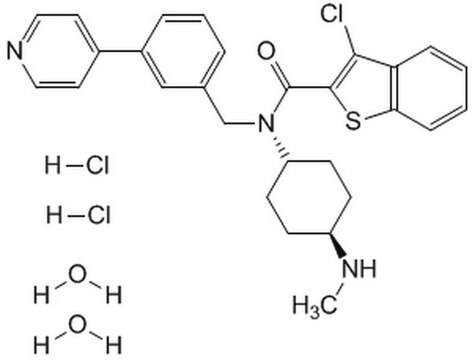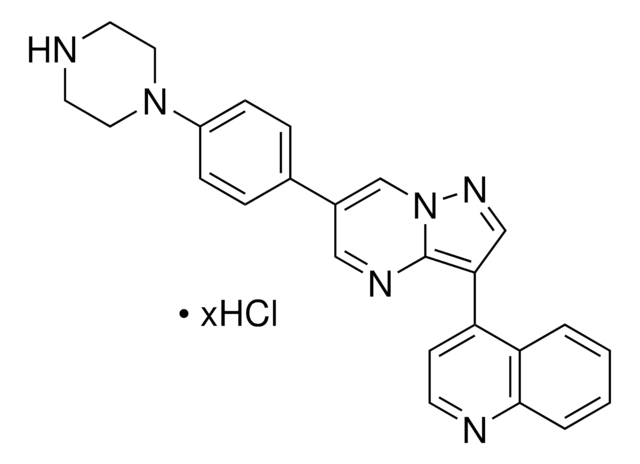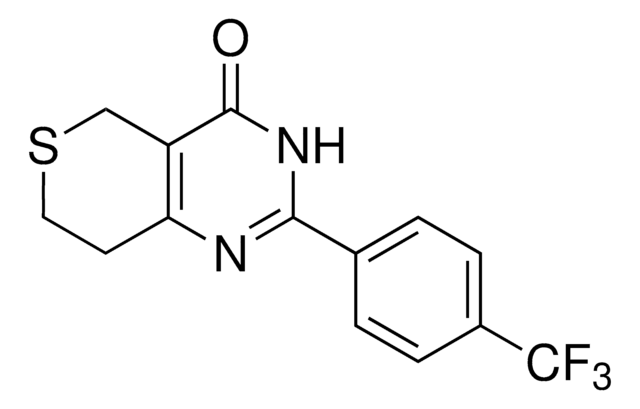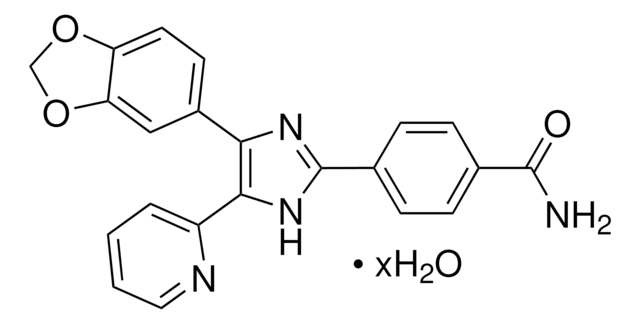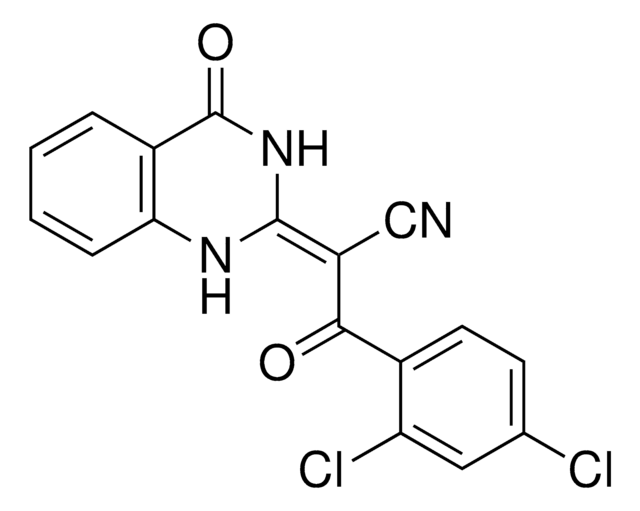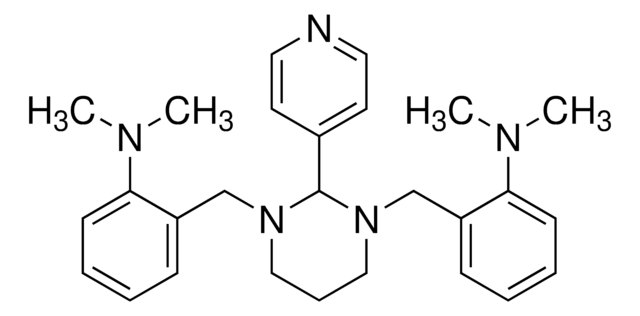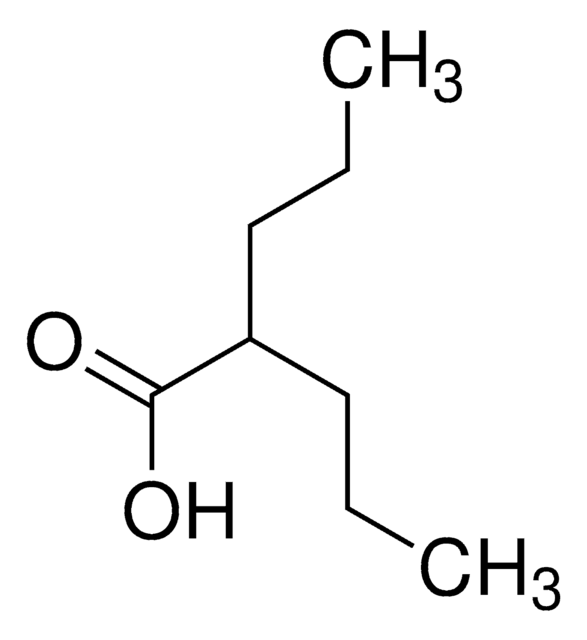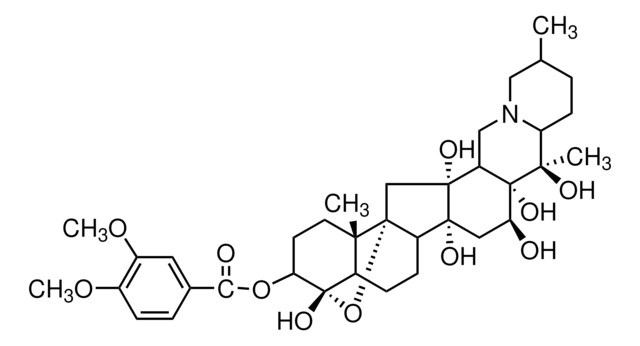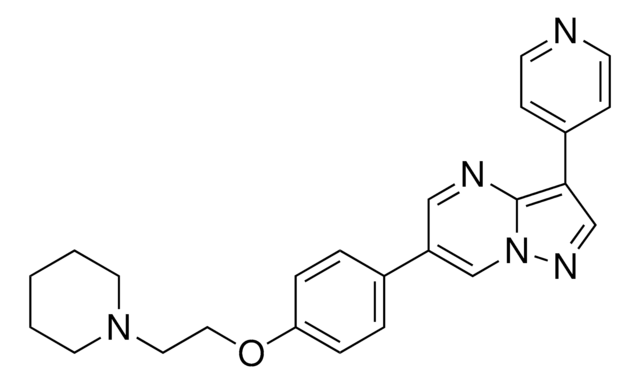C4116
Cyclopamine hydrate
≥98% (HPLC), solid, Hedgehog signaling pathway inhibitor
Synonym(s):
11-deoxojervine hydrate
About This Item
Recommended Products
product name
Cyclopamine hydrate, ≥98% (HPLC)
Assay
≥98% (HPLC)
form
solid
color
white
solubility
DMSO: soluble ≥5 mg/mL
H2O: insoluble
storage temp.
2-8°C
SMILES string
O.C[C@@H]1CN[C@H]2[C@@H](C)[C@@]3(CC[C@H]4[C@@H]5CC=C6C[C@@H](O)CC[C@]6(C)[C@H]5CC4=C3C)O[C@@H]2C1
InChI
1S/C27H41NO2.H2O/c1-15-11-24-25(28-14-15)17(3)27(30-24)10-8-20-21-6-5-18-12-19(29)7-9-26(18,4)23(21)13-22(20)16(27)2;/h5,15,17,19-21,23-25,28-29H,6-14H2,1-4H3;1H2/t15-,17+,19-,20-,21-,23-,24+,25-,26-,27-;/m0./s1
InChI key
KDAGJRDPNXDDSB-HBYCUIHISA-N
Gene Information
human ... EBP(10682)
Looking for similar products? Visit Product Comparison Guide
General description
Application
- as a sonic hedgehog (Shh) inhibitor in various experiments
- to explore the effects of stress stimulation on the proliferation and differentiation of fibrochondrocytes
- to study its influence on ocular vessel patterning
Biochem/physiol Actions
Features and Benefits
Storage Class Code
11 - Combustible Solids
WGK
WGK 3
Personal Protective Equipment
Certificates of Analysis (COA)
Search for Certificates of Analysis (COA) by entering the products Lot/Batch Number. Lot and Batch Numbers can be found on a product’s label following the words ‘Lot’ or ‘Batch’.
Already Own This Product?
Find documentation for the products that you have recently purchased in the Document Library.
Customers Also Viewed
Articles
Cancer stem cell media, spheroid plates and cancer stem cell markers to culture and characterize CSC populations.
Related Content
Apoptosis, or programmed cell death (PCD), is a selective process for the removal of unnecessary, infected or transformed cells in various biological systems. As it plays a role in the homeostasis of multicellular organisms, apoptosis is tightly regulated through two principal pathways by a number of regulatory and effector molecules.
n proliferating cells, the cell cycle consists of four phases. Gap 1 (G1) is the interval between mitosis and DNA replication that is characterized by cell growth. Replication of DNA occurs during the synthesis (S) phase, which is followed by a second gap phase (G2) during which growth and preparation for cell division occurs. Together, these three stages comprise the interphase phase of the cell cycle. Interphase is followed by the mitotic (M) phase.
Our team of scientists has experience in all areas of research including Life Science, Material Science, Chemical Synthesis, Chromatography, Analytical and many others.
Contact Technical Service
